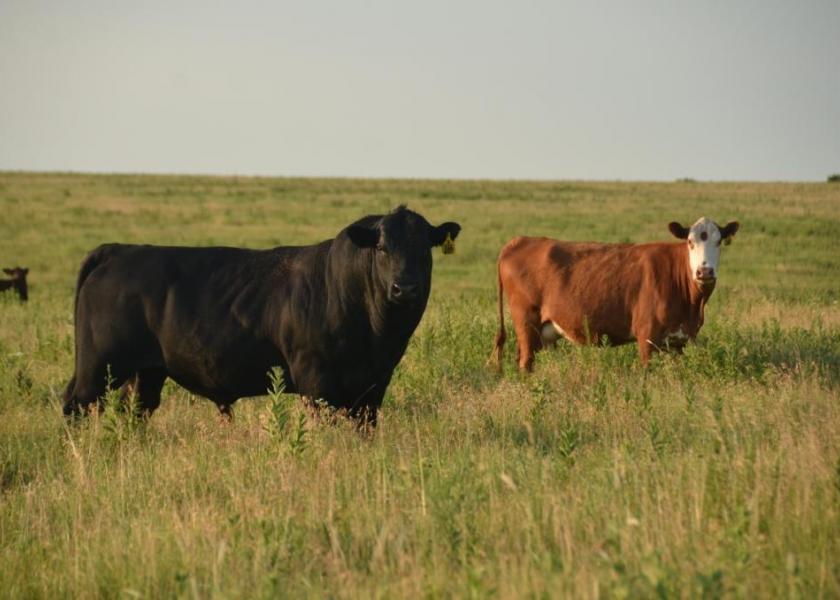Bovine Trichomoniasis Found in South Dakota Beef Cattle Herd

Two bulls in a South Dakota beef cattle herd have tested positive for bovine trichomoniasis, also known as trich, a disease that can be economically devastating to cattle producers.
The South Dakota Animal Industry Board (AIB) announced on May 30 that the bulls had been detected in Oglala Lakota County after testing positive for the disease. Officials from AIB are working with the owner of the cattle and the local veterinarian to develop a management plan to control the disease. Neighboring cattle ranchers will also be notified so that potential contact with infected animals does not occur.
Trich is a protozoal parasite that is transmitted from cows and bulls during breeding. Bred females that contract Trichomonas foetus can result in early term abortions.
There are no physical signs of the disease. However, a cattle producer might become aware that they have trich when a high number of females are open (not pregnant) or late calving.
To prevent having trich in a cattle herd, producers can buy virgin bulls for breeding and run them on a clean herd of females. If purchasing non-virgin bulls it is recommend that they be tested for trich prior to breeding. Bulls already in the herd can also be tested to determine if there is trich present in the herd.
Routine pregnancy checking and selling of open females is also recommended to reduce the spread. Maintaining good border fences on pasture is another way to reduce the risk of cattle commingling that might have trich.
The AIB has implemented the following rules for South Dakota in cooperation with cattle producers to reduce the spread of trich:
- Non-virgin bulls must be tested negative for trich prior to being sold, loaned or leased in South Dakota for breeding purposes;
- Any non-virgin bull entering South Dakota must be tested negative for trich;
- Non-virgin, non-pregnant female cattle (open cows) may not be imported, loaned, leased nor acquired for breeding purposes in South Dakota.
Cattle producers in South Dakota who are concerned about trichomoniasis should contact their herd veterinarian or the AIB at 605-773-3321.







